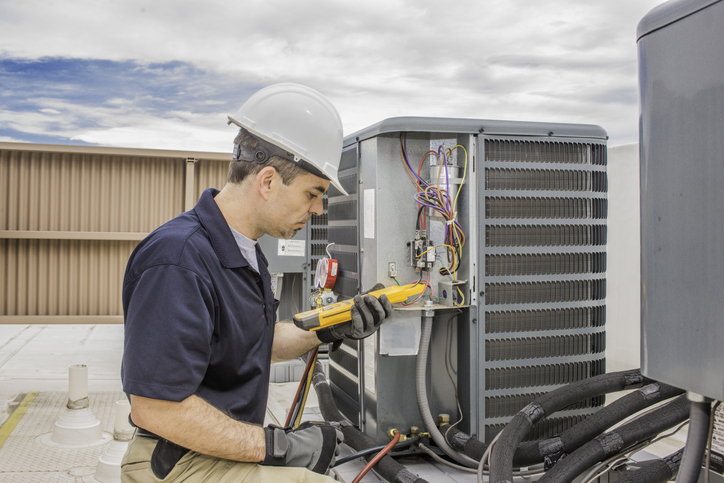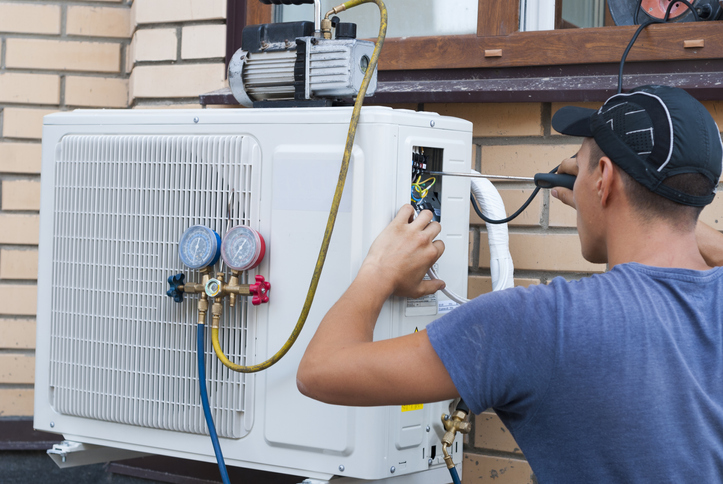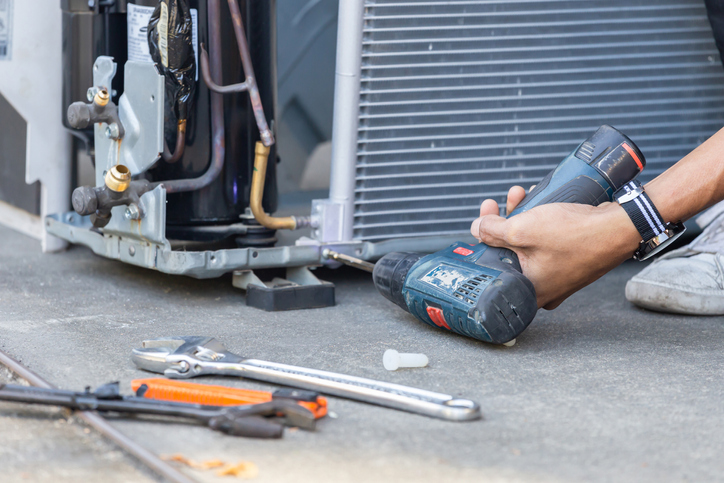
As summer approaches, an air conditioner becomes one of the most essential home appliances. In order to keep cool in hot temperatures, people rely on their AC unit to deliver cold air right into their homes. But what happens when this appliance starts to leak? It’s not uncommon for an air conditioner to develop such a problem over time–especially if it hasn’t been properly maintained or is being used constantly. Air conditioner leakage can occur for a variety of reasons, but the good news is that a leak can almost always be fixed.
If you’re considering a career as an HVAC technician, knowing the most common culprits behind a leak can help you to quickly identify the source of a client’s problem: quickly restoring the flow of cool air within their homes!
Read on to discover six common causes of air conditioner leakage.
1. During Your HVAC Career, Be Aware That a Broken Pump May Cause a Leak
Within an air conditioner unit, the condensation pump is a device that serves to drain water in order to prevent a leak. However, this pump can actually cause a leak if it isn’t working properly. Most pumps are equipped with a float switch, which will turn on when the water gets to a certain level. If this switch has become stuck due to a buildup of debris or scum, it might not work. This lack of functioning can in turn result in dripping water from the unit. If you come across such a situation in your HVAC career, you can try cleaning the switch with bleach. If it still doesn’t turn on, chances are the pump needs replacing.

2. Drain Pan Issues Can Cause Leakage
Located beneath the indoor air handler, the drain pan functions as a trap for condensation created by the air conditioner. It connects to a drain pipe, which transfers the condensate outside to prevent moisture buildup around the unit. If the drain pan is rusting, cracked, or overflowing, this is likely to lead to a leak problem. Check the drain pan for leaks by turning off the AC unit and inspecting the pan for signs of rust, cracks, or debris buildup. If the drain pan is the culprit, this component of the air conditioner can easily be replaced.
3. If the Evaporator Coils Are Frozen, Leaking Will Follow
Evaporator coils can be found inside the door of the air conditioner unit. Refrigerant flows through these coils to deliver cool air through the vents. But if the evaporator coils freeze, ice will form and create a leak. These coils may freeze due to restricted air flow, a buildup of dirt or debris, blocked vents, or a lack of refrigerant. When you become an HVAC technician, you can identify frozen evaporator coils by checking whether there is ice or frost within the unit. From there, you can determine the source of the problem by checking the refrigerant levels, filter, vents, and other components to ensure that air is moving properly through the coils.

4. An Air Leak is One of the Most Common Problems
When an air leak occurs, air escapes around the vents of the air conditioner rather than through the designated path. This air flow can cause condensation to appear where it shouldn’t, leading to dripping from the AC unit. Air leaks can happen over time if a unit isn’t properly maintained. The good news is they can typically be fixed, simply with caulk, by sealing up the sides of the vent where air is escaping.
5. Look Out for a Blocked Condensation Drain Line
The condensation drain line attaches to the drain pan to transfer condensation outside–preventing leakage from occurring indoors. Over time, the drain line can accumulate debris or be exposed to algae or fungi growth. If the drip pan is overflowing but intact, it’s likely that the source of the leak is a clogged condensation drain line. Luckily, a blockage can typically be fixed by clearing the drain line using vinegar or another solution.
These are just some of the sources of leakage in a home’s AC unit. During your HVAC career, you can refer to these common underlying issues as possible causes when it comes to developing a solution for a client’s leaking air conditioner.
Are you interested in attending HVAC school?
Explore programs with NATS to launch your career today!



